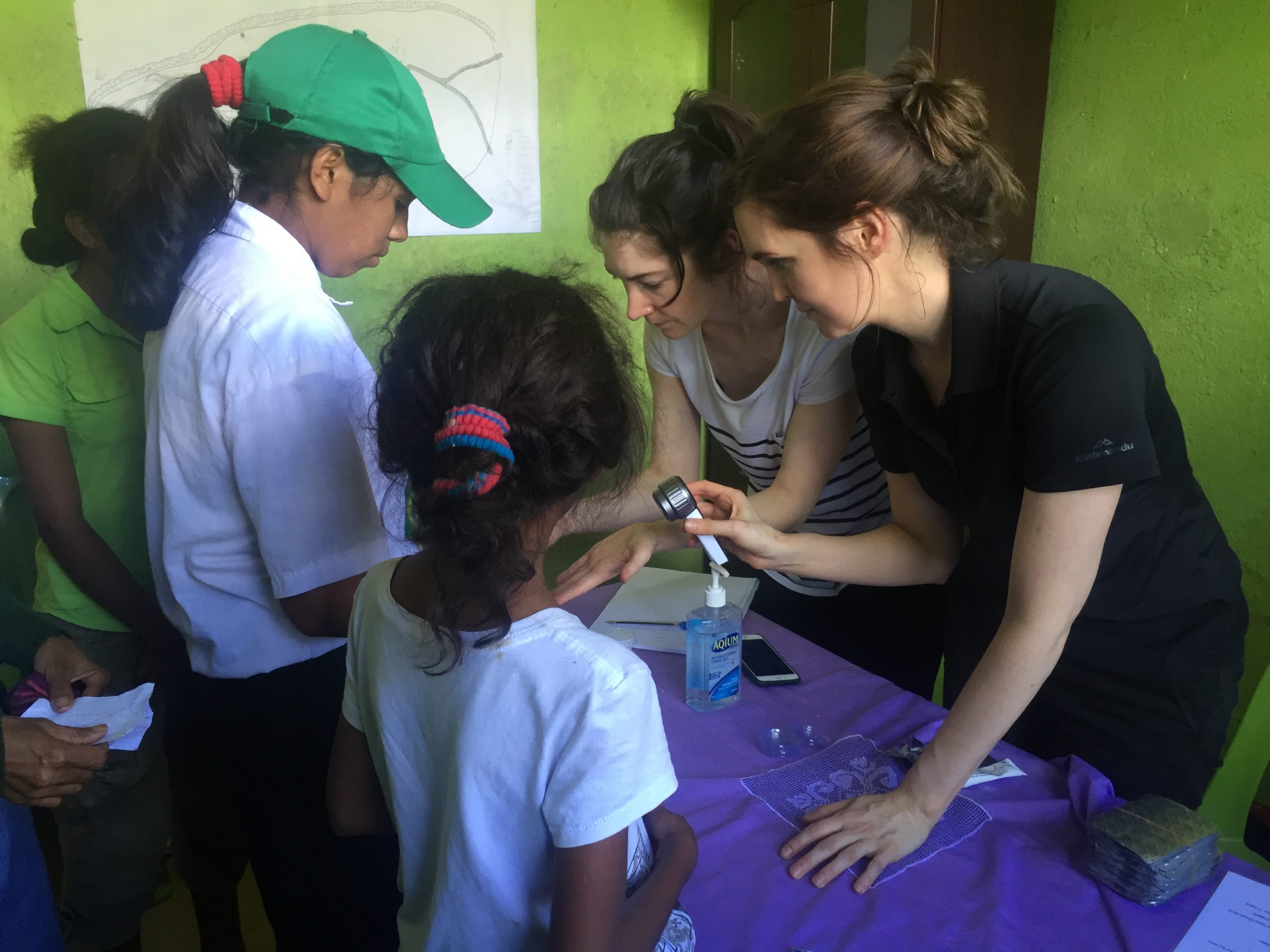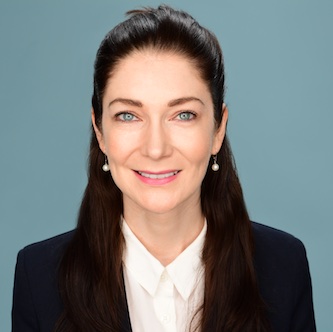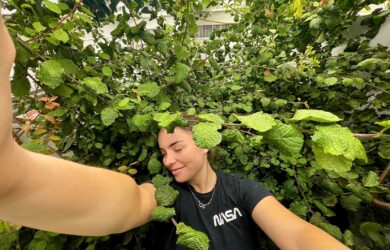
Rebecca Saunderson on her research, her work in dermatology and her commitment to the Gates Cambridge community.
The Gates community is such an amazing network of people who are very altruistic. It is a very special community with a broad focus.
Rebecca Saunderson
When she left Cambridge University Rebecca Saunderson missed the stimulation of the Gates community so much that she became involved in the Gates Cambridge Alumni Association. Now its co-chair, she has devoted a lot of energy to building links and networking opportunities and says there is a good momentum building.
Her first co-chair was fellow doctor Lauren Zeitels, whose death in an avalanche last year was a huge blow both to Rebecca personally and Gates Cambridge generally. Rebecca first met Lauren a few years ago when Lauren, a fellow doctor, came to Sydney. “I picked her up at the airport and we spent a lovely day together. I showed her around and made her swim at Bondi beach in a storm because I told her you can’t come to Sydney and not swim at Bondi beach. We really connected,” she says.
The GCAA has been working with the Gates Cambridge Trust to organise an annual memorial lecture in Lauren’s name. The first lecture takes place this summer in Boston. “It will bring alumni together and it will elevate the profile of the scholarship, which is what Lauren would have wanted,” says Rebecca [2012].
The first lecture will be about some of the issues and initiatives that Lauren was passionate about, including Thread, a Baltimore-based mentoring programme she worked with which creates a family of volunteers, providing everything from tutoring to financial aid, summer jobs and furniture donations for underprivileged high school and college students, and the Pathways Programme Lauren set up at the Massachusetts General Hospital which aims to improve the training of medical residents by encouraging the use of fundamental science to better diagnose and treat patients suffering from unexplained illnesses.
“When Lauren died lots of grieving people wanted to commemorate her and we felt this was the best way to remember her life and her values,” says Rebecca. "She was a true Gates Cambridge Scholar."
Early years
Rebecca’s own values are rooted in her passion for medicine and science. Born and raised in Sydney, her mother was a registered nurse and her father is an electrical engineer.
When she was 13 Rebecca was sent to a local boarding school after her mother got ovarian cancer and became very ill. She was keen for her children to get a good education without too much disruption.
Rebecca’s mother died midway through her first year at the school. Rebecca had long known she wanted to study medicine – her favourite subject at school was Biology – and decided she wanted to specialise in oncology research and treatment.
After school she started a degree in medical science at the University of Sydney, taking a semester out in her first year to travel to Nepal and through Asia. She completed her degree in three years and did an honours year in molecular genetics before starting her four-year training at medical school. During her first degree she had done a pathology course and one of the teachers was the neurologist Associate Professor Roger Pamphlett.
He encouraged Rebecca to do a research project on molecular genetics and motor neurone disease during her honours year. The project offered her a lot of independence to investigate an area that opened up broad possibilities for future research. Professor Pamphlett was also a good role model for her since he managed to combine clinical and research work – a path that Rebecca wanted to emulate. “I have worked as a doctor and seen patients that clinically I can do nothing for. It’s good to be involved in research that could help patients,” she says.
While she was at medical school Rebecca also did a second honours degree in the same laboratory, mainly looking at the genes which might cause motor neurone disease and related diseases. By her fourth year of medical school she was on a clinical placement, but continuing her research work. “I was burning the candle at both ends, but I was very passionate about what I was doing,” she says.
Medical training
When she finished medical school Rebecca began working as an intern at the Royal Prince Alfred Hospital in Sydney. As a junior doctor, she realised that she didn’t want to specialise in oncology and was instead interested in dermatology, immunology and infectious diseases. She completed her training in internal medicine.
However, she still wanted to continue her research work and required a higher degree so she applied to the University of Cambridge to do an MPhil in Medical Science. Her supervisor Professor Sharon Peacock asked her about her interests and made sure that immunology was included in the MPhil. “I was really impressed that she went out of her way to accommodate me,” says Rebecca.
Her degree, which she began in 2012, included research and clinical work. She took part in a large clinical trial which involved administering an additional antibiotic to patients who had invasive Staphylococcus aureus, a bacterial infection leading to high morbidity and mortality across the world, to see if it improved their outcome.
A special community
Rebecca loved her experience at Cambridge. “I was blown away by so many things, for instance, being surrounded by passionate, inspiring people,” she says. “Every moment was full of intellectual stimulation. I loved the quirky traditions too and I spent a lot of time with Gates people and made incredible friendships. The Gates community is such an amazing network of people who are very altruistic. It is a very special community with a broad focus.”
When she finished her MPhil she moved back to Australia to Newcastle on a one-year contract at the beginning of a four-year training in dermatology before moving back to Sydney where she worked in several hospitals.
Throughout her training Rebecca has been interested in how she can use her skills to tackle global and local issues, something that is in keeping with the mission of Gates Cambridge. She has worked with indigenous people in central Australia, with refugees on Christmas Island, in a hospital in rural South Africa with HIV positive babies and more recently on a scabies eradication programme in East Timor.
She finishes her dermatology training in a month and will take up a post as a consultant dermatologist at tertiary hospitals in Sydney where she hopes also to continue her research. She was awarded the FC Florance Bequest by the Australasian College of Dermatologists and will use this to travel to the US on a two-month clinical fellowship which will allow her to learn more about complex medical dermatology.
Over the last year Rebecca has also had to overcome her own medical challenges. True to form, she has used the experience constructively and is working on an online medical consent platform, PracWay, which she says will improve patients’ experience of treatment. The organisation was recently chosen to take part in a health tech start-up programme.
Picture: Rebecca [second on the right] and fellow dermatologist Julia Rhodes, co-founder of the consent project, in East Timor.

Rebecca Saunderson
- Alumni
- Australia
- 2012 MPhil Medical Science (Medicine)
- Corpus Christi College
Gates Cambridge Scholar 2012-2013 MPhil MedicineCochair Gates Cambridge Alumni Association 2016-currentDirector of Membership Gates Cambridge Alumni Association 2014-2016Consultant dermatologist: Prince of Wales Hospital & Royal North Shore Hospital Cofounder Consentic












